What can I eat or drink while traveling? Lists of food and water precautions, like the one below, often seem at odds with the usual goals of a trip abroad. For instance: can we really get a great taste of a local culture while restricting what we actually taste? Sometimes, breaking some of the rules can seem nearly unavoidable, such as when you are staying with a friend’s family. At other times, following the rules very closely is essential (for instance, if you are traveling while taking immune-suppressing medication).
Though you may not be able to follow every recommendation (or even want to), try to become familiar with these precautions and place food and water safety high on your priority list before you start your journey. In most circumstances, adjusting what you eat and drink may not turn out to be as difficult as it might, at first, seem!
FOOD:
- WASH YOUR HANDS prior to eating or handling food. This should be done with bottled or sanitized water, if possible.
- Carry hand sanitizer (>= 60% Alcohol). This is less effective if you can actually see dirt on your hands. In that case, use soap and water first.
- Hot food should be served HOT.
- Hot food is generally safer than food served warm or cold.
- Factory-packaged foods (tuna, sardines, etc.) and dry foods (bread, etc.) are usually safe.
- Meat should be well-done.
- Eggs should be fully cooked.
- Fish should be cooked. (Ceviche is not actually cooked fish! Also, In the US and Europe, Sushi is generally required to be flash-frozen to kill most bacteria and parasites. In other areas of the world, this may not be the case).
Avoid:
- Street food.
- Buffets (Food sits out and grows bacteria. It is also exposed to multiple people).
- Shellfish (raw or cooked…cooking does not remove toxins eaten by the shellfish).
- Large Reef Fish (Ciguatera poisoning occurs when large fish like grouper, sea bass, sturgeon, and red snapper eat lots of smaller fish that each contain tiny amounts of toxins).
- Unpasteurized dairy products, including milk, cream for coffee, ice cream, cheese, and yogurt (pasteurization kills bacteria). If you are not sure if it is pasteurized, avoid it!
- Fresh fruits and vegetables that you cannot personally peel.
- Salad (unless you figure out how to peel it!).
- Condiments that are not in sealed packets.
- Leftovers.
WATER:
Avoid fresh (“tap” or well) water:
- No ice cubes or crushed ice in any drink.
- No alcoholic drinks diluted with water.
- Keep your mouth closed in the shower.
- Brush your teeth with bottled water.
- No fresh-squeezed juice (fruits may be washed with contaminated water) or fruit juice made from concentrate with fresh water added.
- Try to avoid water entering your mouth during swimming, even in chlorinated pools.
- Swimming in fresh-water lakes in some parts of the world can result in gastrointestinal, respiratory, and other illness and/or parasitic infections, even if you do not accidentally drink it.
- Avoid fresh water (and follow food precautions) on airplanes flying to and from your destination country as you would within your destination country.
More likely safe to drink:
- Hot liquids (boiled for one minute).
- Factory-canned/factory-bottled liquids (juice, soda, etc.).
- Carbonated beverages (in bottles, not fountain sodas).
- Alcoholic beverages (no ice or water added).
The Centers for Disease Control and Prevention, the IAMAT, the World Health Organization and many other organizations have further useful information on food and water safety. At our NYC Travel Clinic, we review this and many other topics as part of your consultation. Finally, consider researching each region you are visiting in detail. You can often find specific food and water recommendations for specific destinations.
Have a great trip!

